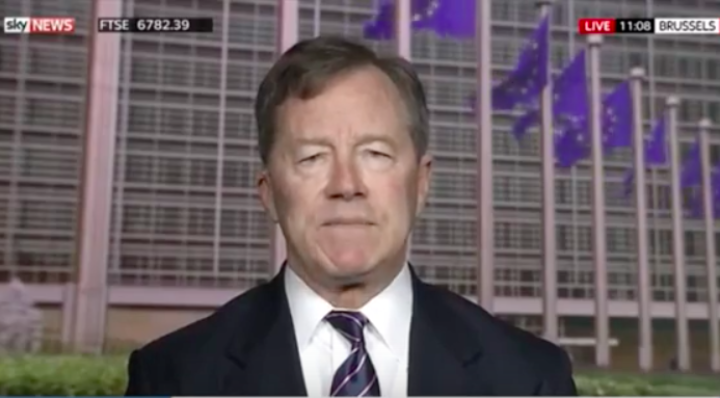Military experts: Climate change could lead to humanitarian crisis
Security and Climate Change: Are we living in 'The Age of Consequences'?
By Pippa Henderson
info@eciu.netShare
Military experts speaking at an event in Chatham House today (1st Dec) will warn that climate change, in combination with other factors, could lead to ‘a humanitarian crisis of epic proportions’.
Brigadier General Stephen A. Cheney, CEO of the American Security Project and member of the Department of State’s Foreign Affairs Policy Board, will say that migration is set to become the ‘new normal’.
“Climate change could lead to a humanitarian crisis of epic proportions. We’re already seeing migration of large numbers of people around the world because of food scarcity, water insecurity and extreme weather, and this is set to become the new normal,” he says.
“Climate change impacts are also acting as an accelerant of instability in parts of the world on Europe’s doorstep, including the Middle East and Africa. There are direct links to climate change in the Arab Spring, the war in Syria and the Boko Haram terrorist insurgency in sub-Saharan Africa.”

US military experts have highlighted the risks that climate change poses to both American homeland security and global security; climate change also poses specific risks to US military bases, many of which are low-lying and vulnerable to sea-level rise and flooding. The US Department of Defense regards climate change as a ‘accelerant of instability and conflict’, and the Pentagon concludes that climate impacts are a ‘threat multiplier’ for security concerns.
“Countries are going to pay for climate change one way or another,” says General Cheney. “The best way to pay for it is by tackling the root causes of climate change and cutting greenhouse gas emissions. If we do not, the national security impacts will be increasingly costly and challenging.”
At the event, speakers will discuss a new documentary from the US, The Age of Consequences, directed by Jared P. Scott, which explores the links between climate change and security, including in current events in Syria, Egypt, the Sahel and Bangladesh.

Major GeneralMunir Muniruzzaman,former military adviser to the President of Bangladesh and chairman of the Global Military Advisory Council on Climate Change (GMACCC), says that climate change in South Asia could lead to refugee problems on an ‘unimaginable scale’.
“Bangladesh is the ground zero of climate change,” he says. “With a one metre sea-level rise, Bangladesh will lose about 20 percent of its land mass. We’re going to see refugee problems on an unimaginable scale, potentially above 30 million people.
“India has already unilaterally fenced in Bangladesh on all three sides, so if we see climate refugees in these numbers, it will destabilise not only Bangladesh, but also severely impact international stability in the region.”
General Muniruzzaman continued: "South Asia is one of the most water stressed regions of the world. A combination of water scarcity in the climate induced conditions and regional politics has made the right brew for a potential conflict. South Asia therefore could be the scene of the first water war in the climate stressed conditions.
"Climate Change is the greatest security threat of the 21st century"